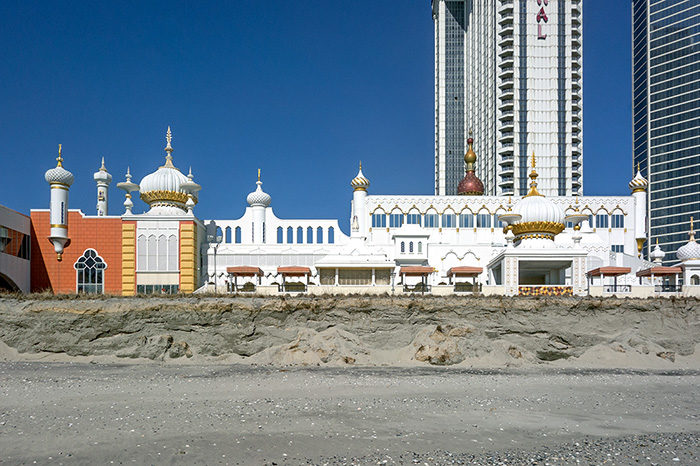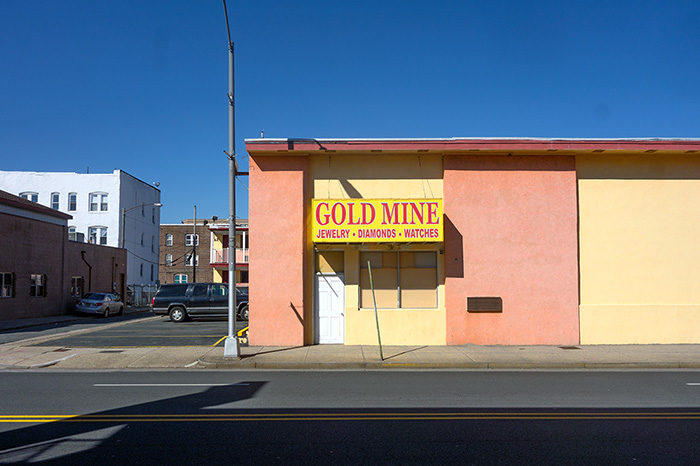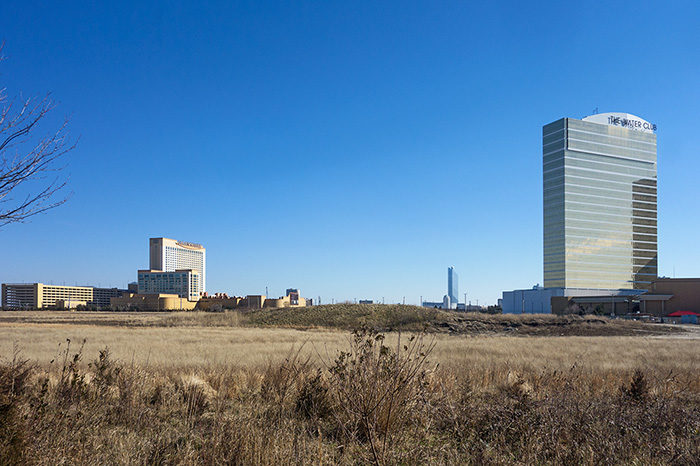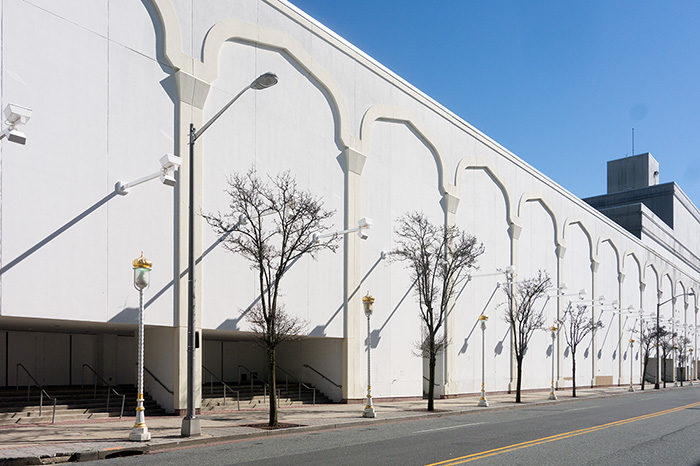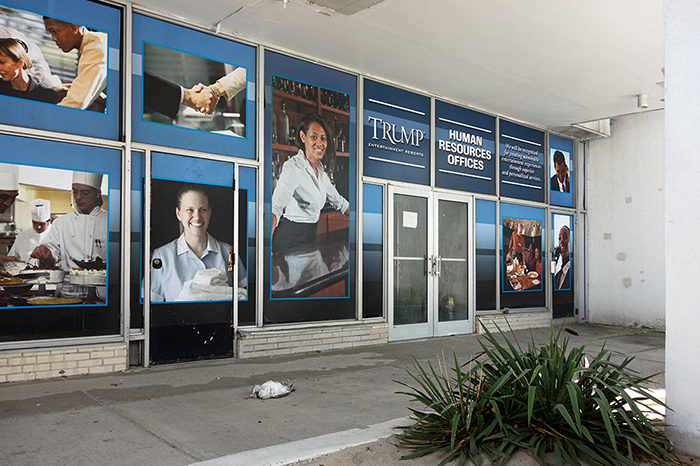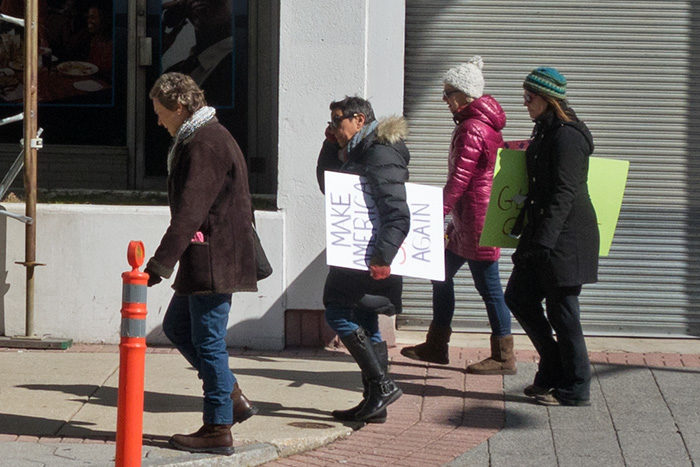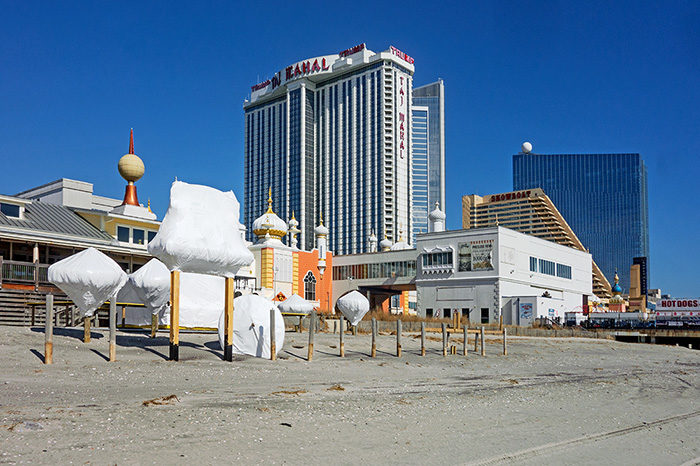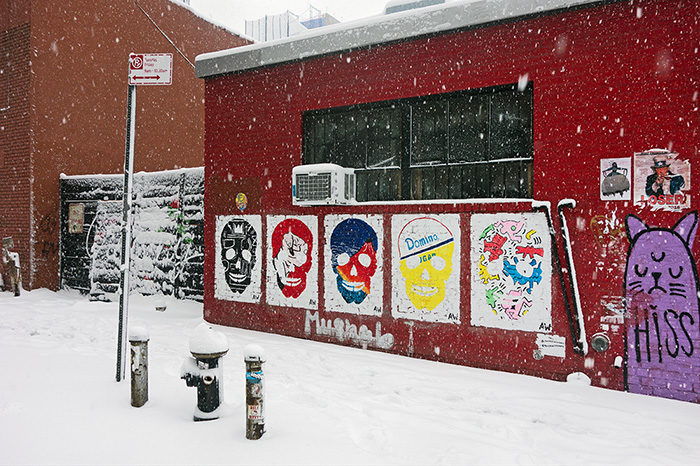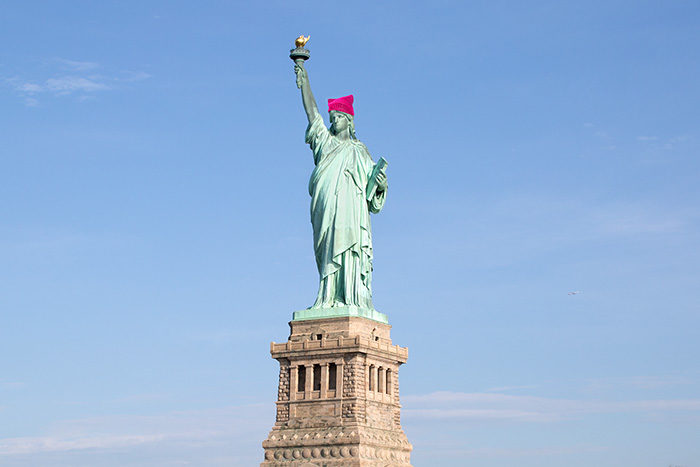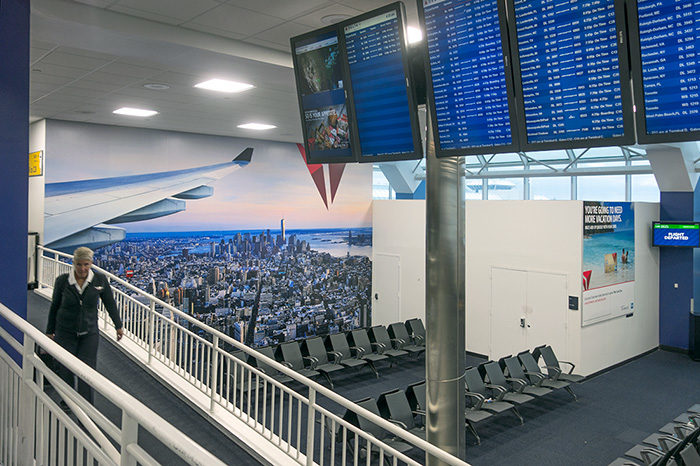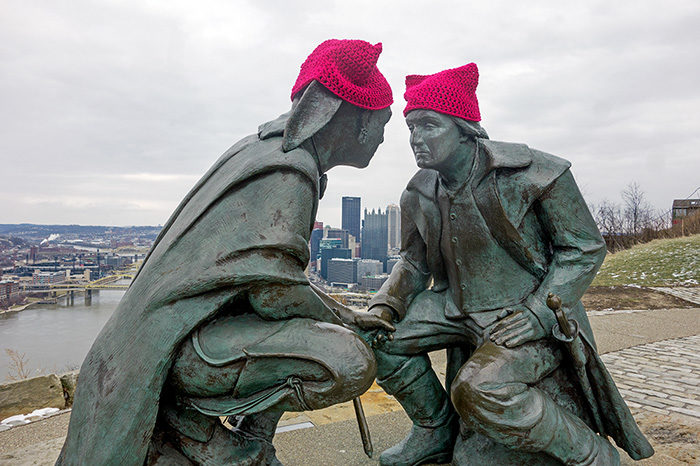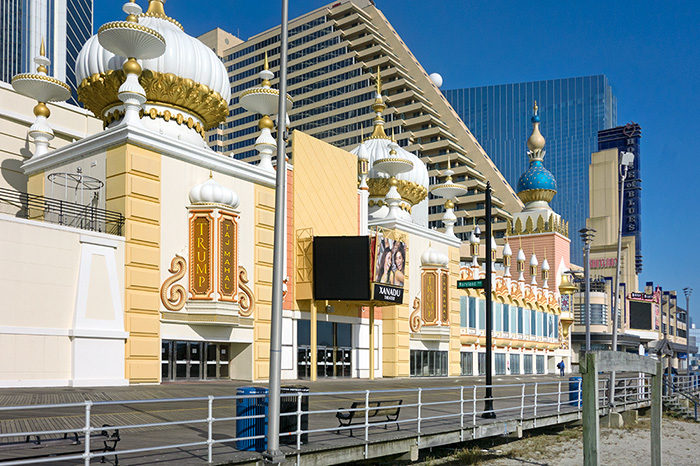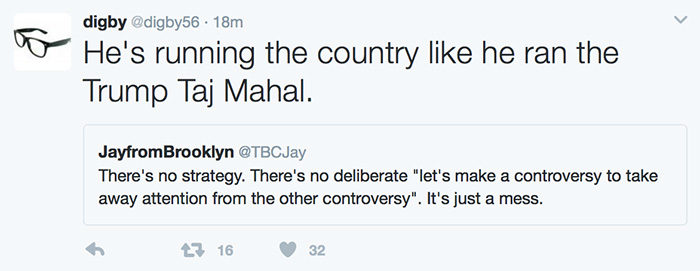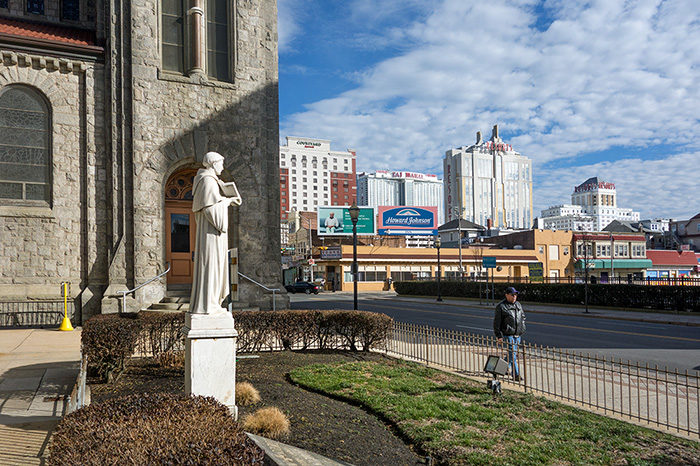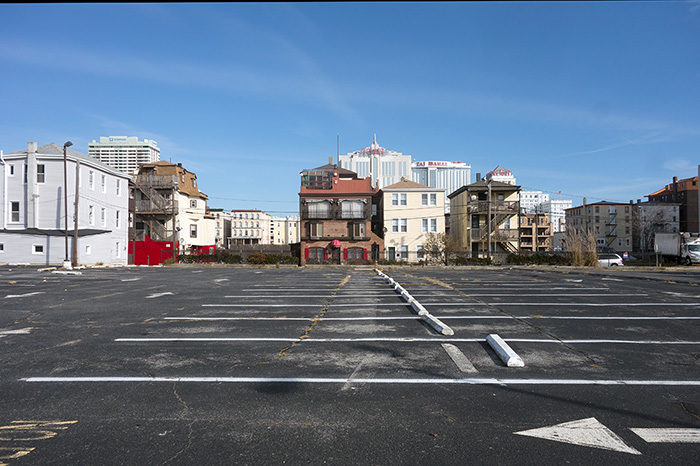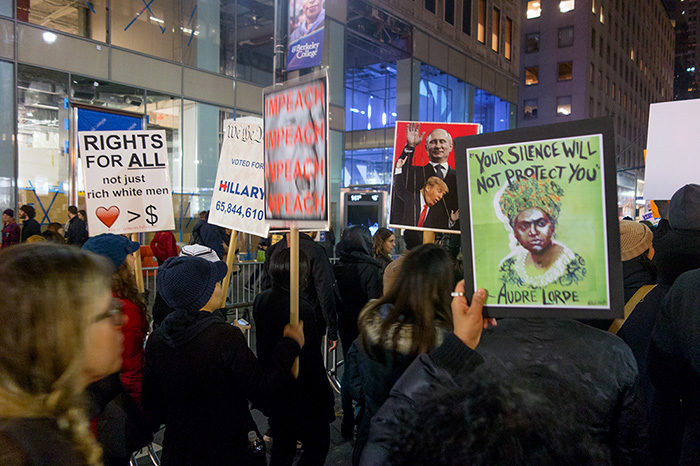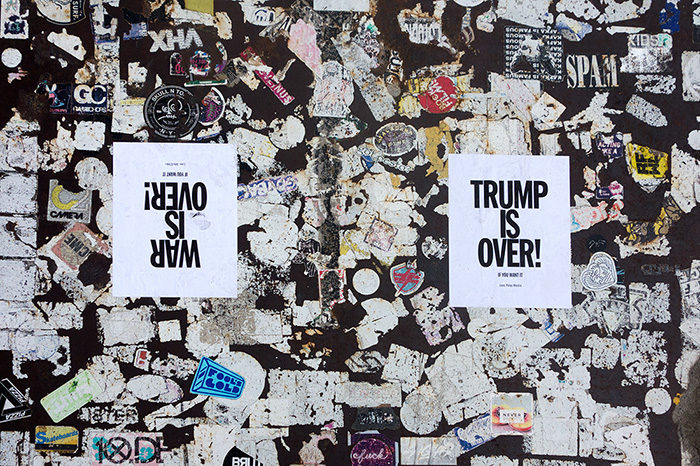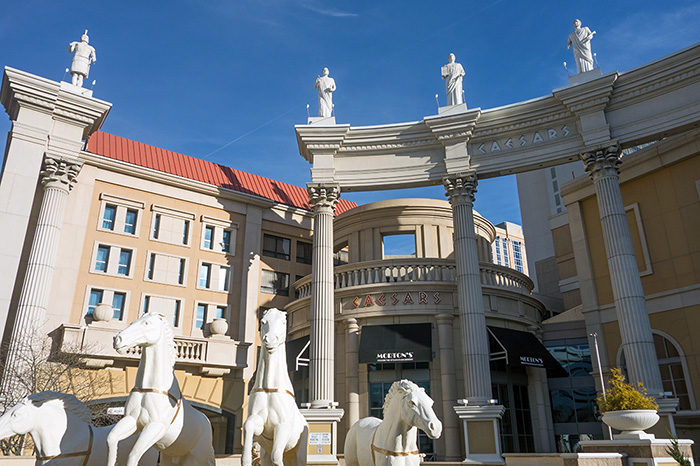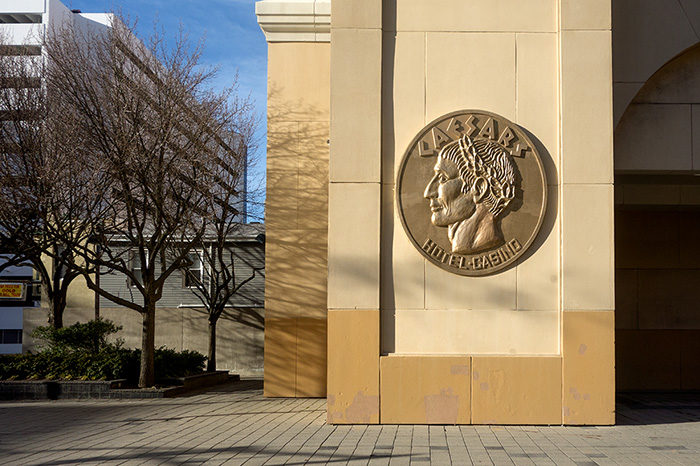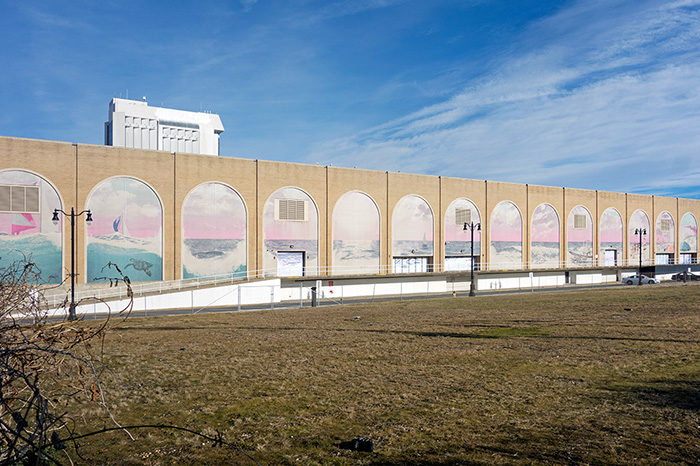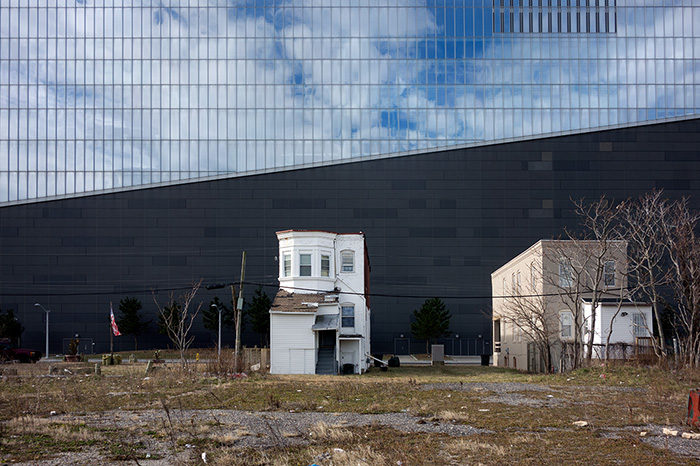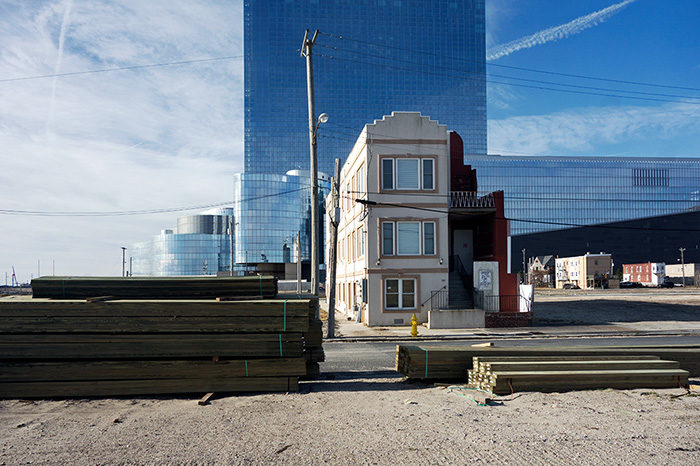
House near Revel, currently empty casino — © Brian Rose
1963: Pauline Hill becomes executive director of the Atlantic City Housing Authority and Urban Redevelopment Agency. Under her leadership, about 80 acres of South Inlet land were razed to make way for casinos and high-rises. The project displaced more than 1,500 residents, and development never came. The still-empty tract is known as Pauline’s Prairie.
— Press of Atlantic City
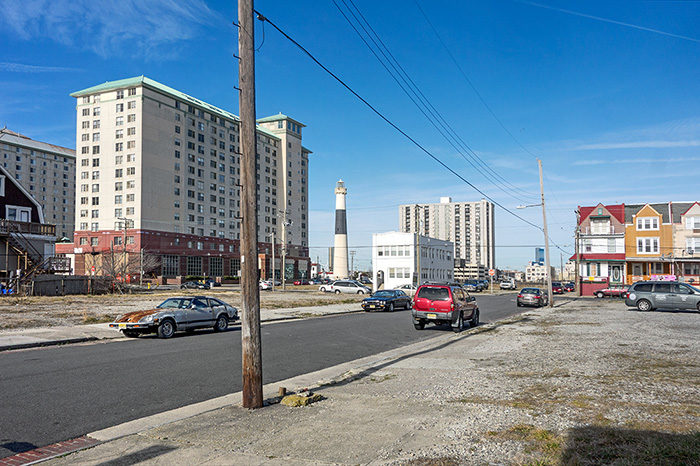
South Inlet neighborhood, Atlantic City — © Brian Rose
It was poor before casinos, poor when it had them, and it’s even poorer now that five of them have been shut down. Most of the people you see in the South Inlet are people of color. Most of the businesses are run by ethnic minorities. The Alpha & Omega grocery is owned by Greeks and staffed by Oaxaqueños. Around the corner, the marquee of the Baba Jones Food Market announces you can buy baby food with your EBT card. There’s also Mike Hauke’s pizzeria Tony Boloney’s, which sells tikka masala slices to intrepid hipsters, construction workers and the few remaining neighbors. In 2015 in a New Yorker article, Hauke described his patrons as a mix of “shitbags, crackheads, hustlers, and pimps.” These were happier times. Today even the shitbags seem few and far between.
— Route 40
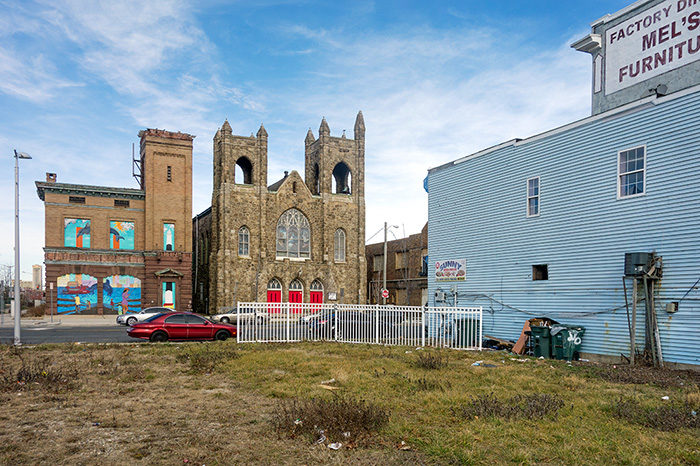
Atlantic Avenue — © Brian Rose
Historic black church (Price Memorial AME Zion Church) on Atlantic Avenue with abandoned fire station.
During the early years, Blacks were integrated throughout the city. However, as their numbers increased they were forced out of White neighborhoods and into a ghetto known as the “Northside,” an area that was literally the other side of the railroad tracks that ran through that section of town.
The Northside became a city within a city. As Blacks encountered racial prejudice, they reached inward to construct a social and institutional life of their own. While White racism had created the physical ghetto, it was civic-minded upper- and middle-class Blacks who led their community to create an institutional ghetto in order to provide services that the White community had denied Blacks. The first major institution established by Blacks in Atlantic City was the church.
— Nelson Johnson (from his book The Northside)
